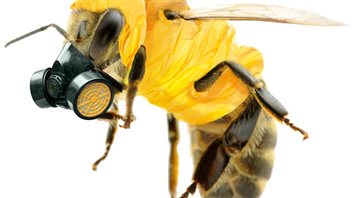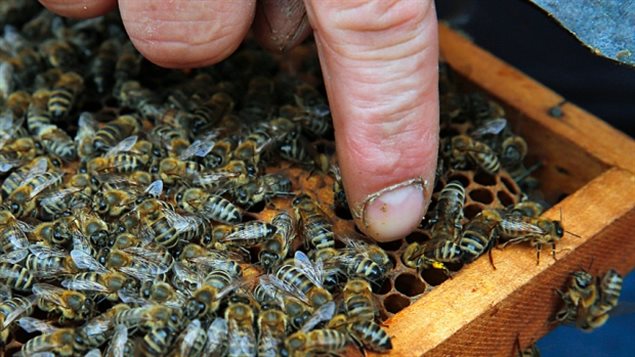The Canadian province of Ontario wants to vastly reduce the use of neonicotinoid pesticides which have been linked to big declines in honey-bees and other pollinating insects. It hopes to have legislation in place by next planting season next July that would reduce the use of these chemicals by 80 per cent in corn and soybean fields.
“This is the first jurisdiction outside of the European Union to actually take significant action on neonicotinoid pesticides,” says John Bennett, national program director of the Sierra Club Foundation.
Listen‘A tremendous step’
“It’s a tremendous step. It’s a very large agricultural economy in Ontario and its decision could have an important bearing on what happens later on throughout Canada and in the United States,” says Bennett.

The move will help save millions of bees, says Bennett, noting that half of Ontario’s honey bees died last winter. While high number the deaths is not directly linked to the pesticides, Bennett thinks the chemicals affect their immune systems, navigation and ability to metabolize food, leaving them too weak to survive the winter.
Some famers concerned
The law would save farmers millions of dollars in money they usually spend on seed coated with the pesticide, says Bennett. Currently, all corn, canola and most soybeans seeds are coated with neonics. The Ontario government says only a maximum of 20 per cent of the corn and soybean fields actually need the chemicals to fight insects that reduce yield.
Some farmers are worried the restrictions amount to a ban on the pesticides and that could put them at a competitive disadvantage. The makers of the pesticides continue to say that if they are used properly they are safe.
Canadian government ‘twiddling its thumbs,’ says environmentalist
The province of Quebec is also studying the effects of these pesticides and Bennett hopes it will take action similar Ontario’s. But ultimately, he says it is the responsibility of the federal government to act. “I believe what they’re doing is twiddling their thumbs and hoping this problem will go away,” says Bennett. He says the Canadian government keeps talking about doing reassessments and reviews of these pesticides while, at the same time, it issues new licences for new forms of them.
Bennett urges the government to use the precautionary principle instead. He says pesticides should be proven to be safe before being approved, instead of being pulled from the market only after they have been proven to cause harm.







For reasons beyond our control, and for an undetermined period of time, our comment section is now closed. However, our social networks remain open to your contributions.